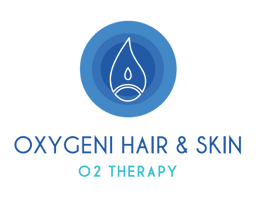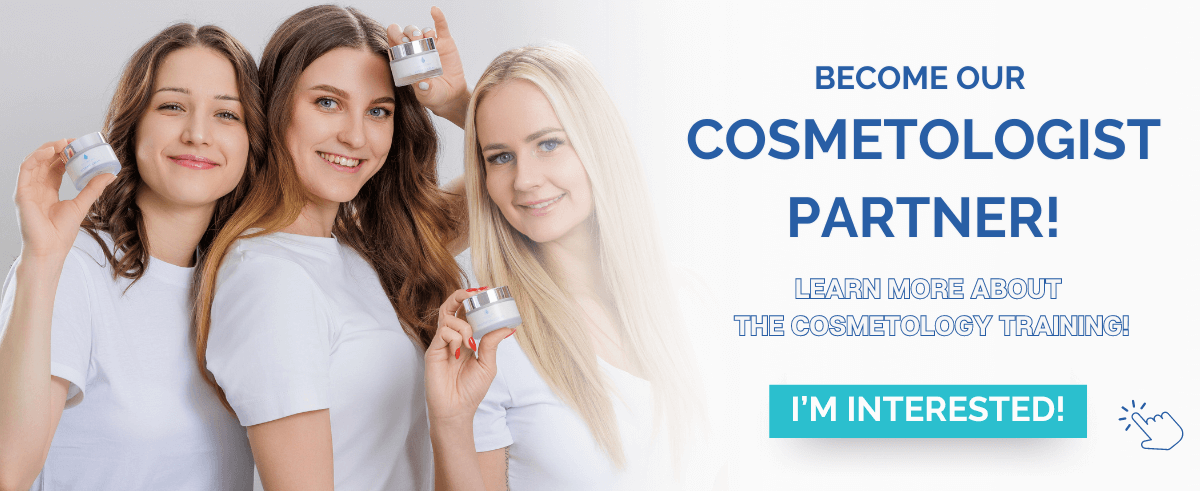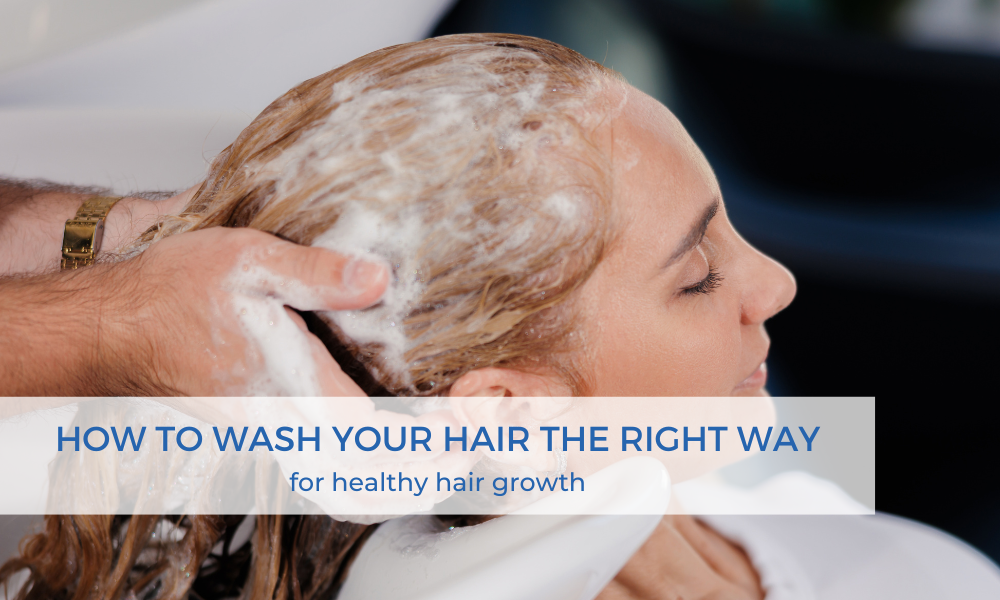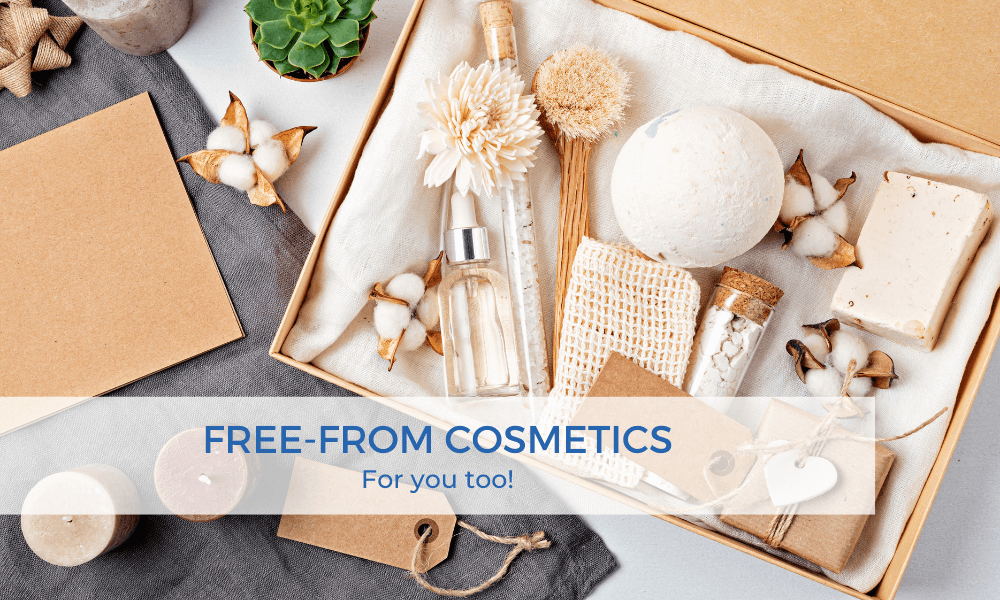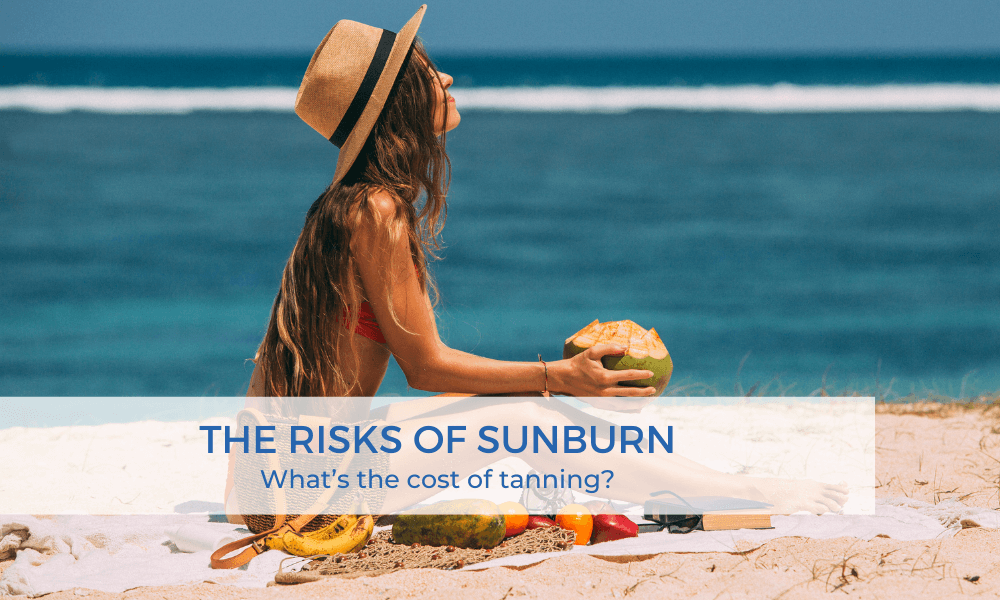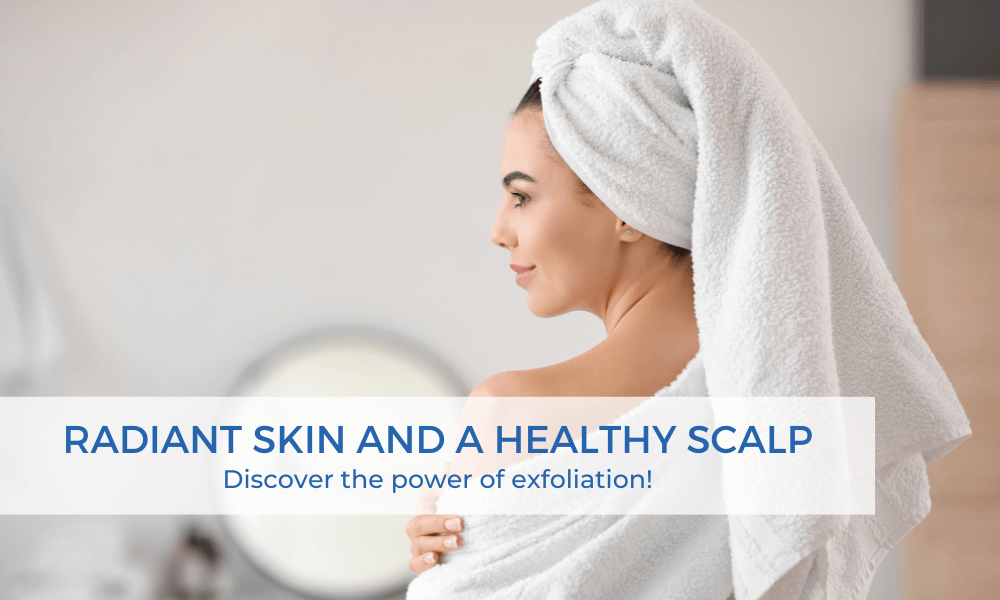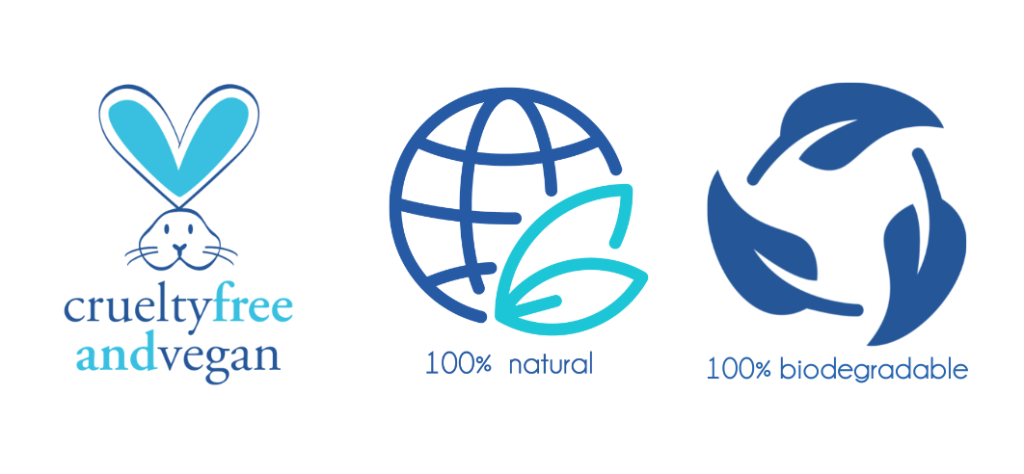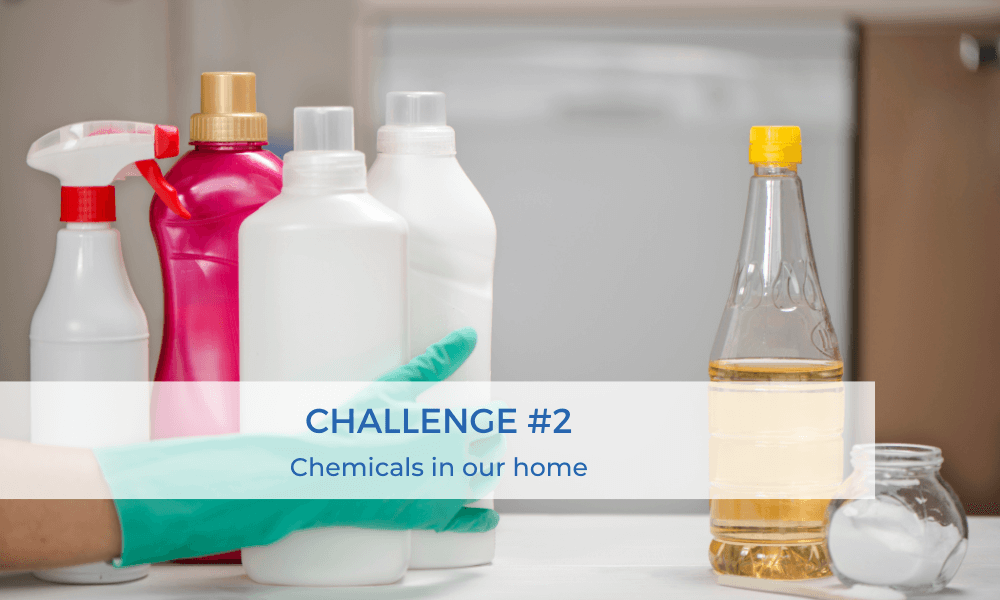
CHEMICALS IN OUR HOME
In today’s world, the shift toward conscious, healthy living is on the rise. Yet, many people forget that the journey to healthier choices begins at home. Most households are filled with chemicals and substances that are used every day, which should be avoided because inhaling or coming into contact with them can be very harmful to our health. Take for example kitchen cleaning products – dishwashing detergent, disinfectant, and so on – if we read their ingredient lists, we often encounter chemical names that we likely have no idea about. Read this article to learn about Chemicals used at home and their alternatives!
WHAT ARE CHEMICALS EXACTLY?
Chemical products, substances, and ingredients are produced chemically. These compounds can contribute to serious illnesses such as breast cancer, thyroid cancer, attention deficit disorders in children, hyperactivity, and developmental disorders of the nervous system. It is very important to be aware of the substances surrounding us and to identify which ones are harmful. In this article, we’ll help you identify those chemical substances in your home that are better off eliminated from your life!
WHAT KIND OF CHEMICALS ARE IN OUR HOME?
Think about how many products filled with chemicals we use nowadays. If we were to list them all on paper, we would probably fill an entire page in no time. These products are everywhere in our homes: kitchen, bathroom, cosmetic kits, cleaning agents, air fresheners in our living rooms... the list is endless. But let’s take a closer look at the most common ones: what are they exactly, why are they harmful, and what problems can they cause with long-term use?
- Household cleaners: acids, alkalis, detergents
Due to their very strong odor and corrosive effects, it is worth considering replacing them as soon as possible, especially if there are young children in the household. These products can be particularly dangerous to them.
- Paints, thinners, solvents
Surely we have all heard that after painting, “open the windows to let the house ventilate.” Considering this, think about how many strong chemical agents are in such a product, if during or after its use you can’t stay nearby because it’s dangerous to you. Yet how many people buy and use them almost every day? It’s frightening, isn’t it?
- Rodenticides, insecticides, worm killers, repellents (biocides), mold removers
At first glance, it may seem like an easy and good solution to use such products to rid our homes of unwanted “residents”. However, if we read the ingredient list and the warning not to inhale the gas emitted, it is worth reconsidering whether the risk is worth it. Because if a product contains so many strong chemical agents that it can kill an animal, then surely it is not harmless to humans either.
- Formaldehyde: found in deodorants, medicines, bath salts, paints, detergents
It may be responsible for regular hair loss, the development of allergies and skin irritation, and even sleep disorders!
- PCP pentachlorophenol: found in paints, varnishes (e.g., xyladekor)
It often causes sudden illness and fainting when inhaled. Additionally, in the long term, it can damage the kidneys and liver.
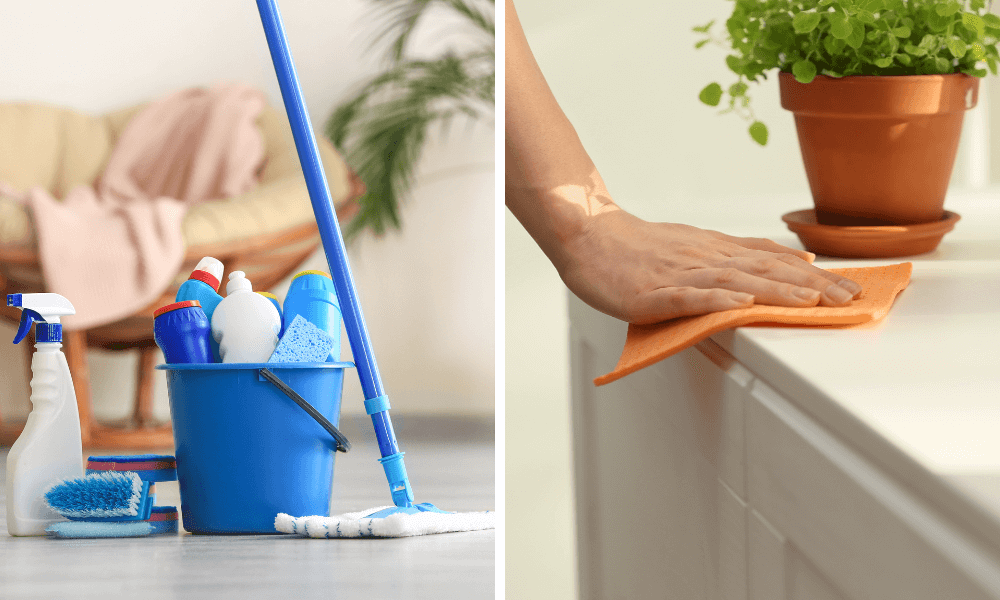
WHY IS IT IMPORTANT TO REPLACE THESE PRODUCTS?
As mentioned earlier, these ingredients/substances are extremely harmful to health, so it is important to replace these cleaning/cosmetic products with natural alternatives instead of chemicals as soon as possible. This is especially true for skin problems, as everyday chemicals can easily trigger or worsen symptoms. Examples of such skin conditions include rosacea, psoriasis, allergic rashes, and eczema.
However, there is no cause for concern! There are plenty of natural options available for cleaning and cosmetic products.
NATURAL CLEANING PRODUCTS? YES!
Cleaning products can be made at home, not just bought in stores. This is not only beneficial because we know what goes into them, avoiding any dangerous chemicals, but also because we do not pollute the environment by constantly buying chemical-laden bottles.
NATURAL HOME CLEANING PRODUCTS:
- Cleaning paste
Mix equal parts baking soda and soap with 10-20 drops of essential oil (the latter mainly for a pleasant scent during cleaning). Apply the paste to critical, dirty areas and hard-to-reach corners, leave it on for about five minutes. Finally, dampen the area with a wet sponge and wipe it off after another five minutes.
- Vinegar and citric acid
These are two heavyweights in the natural cleaning category. There is no stain or dirt they can’t handle. Use vinegar as a disinfectant, limescale remover, rinse aid (mixed with a little essential oil), or as a fungicide. Citric acid is excellent for descaling as well as being a great preservative.
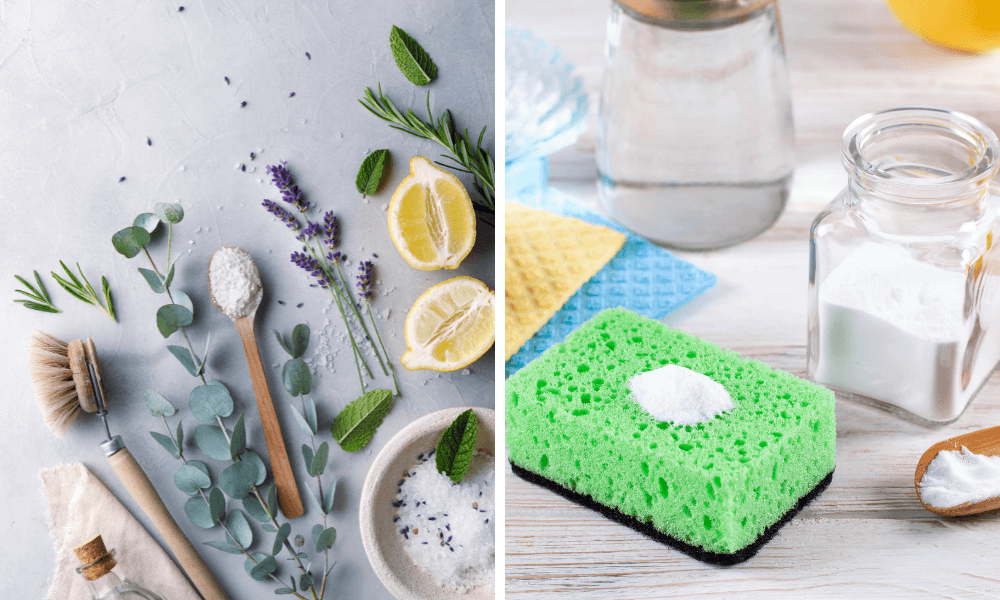
WHY IT'S ESPECIALLY IMPORTANT TO MINIMIZE THE PRESENCE OF CHEMICALS IN OUR HOMES?
It’s important at every stage of life to prioritize our health and cultivate awareness in all aspects. However, there are specific life situations where it becomes crucial to pay extra attention to ourselves—and consequently to others. One such example is during pregnancy. During this time, we are inherently more sensitive and susceptible to everything, making it extremely important to carefully choose what we apply to our bodies and use to clean our homes. And speaking of babies! A child’s immune system is not as developed as that of a healthy adult. This is something to always keep in mind when purchasing cleaning products or skincare items. For them, there’s an even greater likelihood of developing skin irritations due to certain products.
BATHROOM CHECK: WHAT COSMETIC INGREDIENTS SHOULD WE AVOID?
Often, we hear that most ingredients in cosmetic products do more harm than good. Yet, many fail to notice what exactly those products on the shelves contain. As we go down the list, alcohol is often found as the primary ingredient in cosmetic and skincare products. This is mostly used in products to preserve and disinfect them, as well as to regulate density.
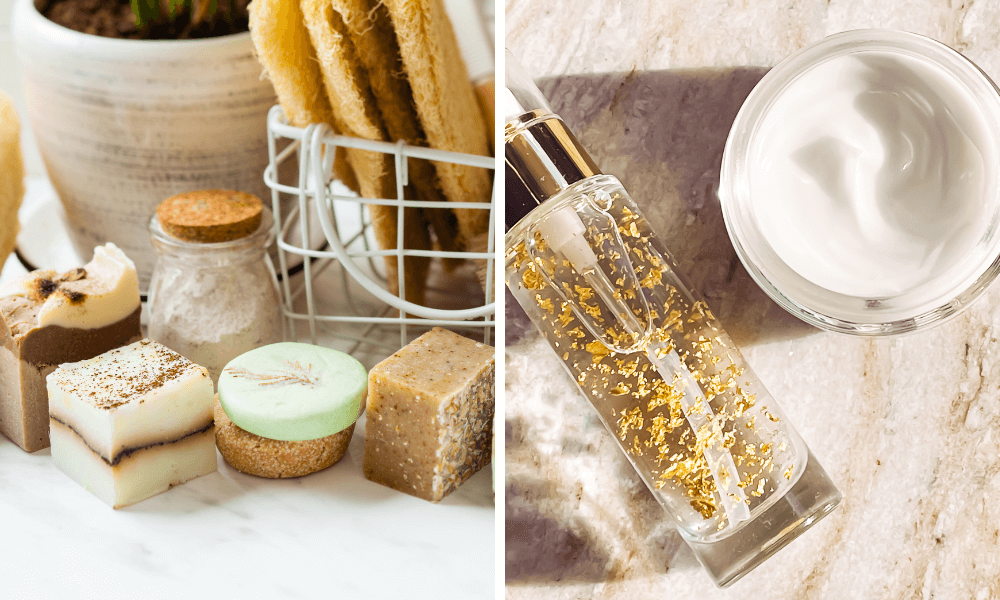
Tonics, facial cleansers (especially those designed for problematic skin) are filled with alcohol because alcohol has a strong drying effect. It is added to regulate skin oiliness, dry out pimples, and kill bacteria. However, it’s important to remember that alcohol’s strong drying effect not only eliminates bacteria and pimples but also begins to break down the skin’s natural protective layer, initiating harmful processes such as accelerating skin aging.
Another frequently encountered ingredient that should be avoided is artificial fragrances. Regardless of their form or strength, it’s not beneficial for a cosmetic or skincare product to have a fragrance. Why? The answer is simple: various artificial fragrances can irritate the skin (especially sensitive skin).
CHEMICAL-FREE hair care routine
It’s often difficult to navigate through numerous products and select the one that’s least harmful to both ourselves and the environment. This is why Oxygeni Hair products can be a good choice: not only do they contain 100% natural ingredients (guaranteeing no irritation during short or long-term use), but they also come in biodegradable packaging. By composting the bottles, they break down in a few months, minimizing our environmental footprint compared to chemically laden products bought from stores.
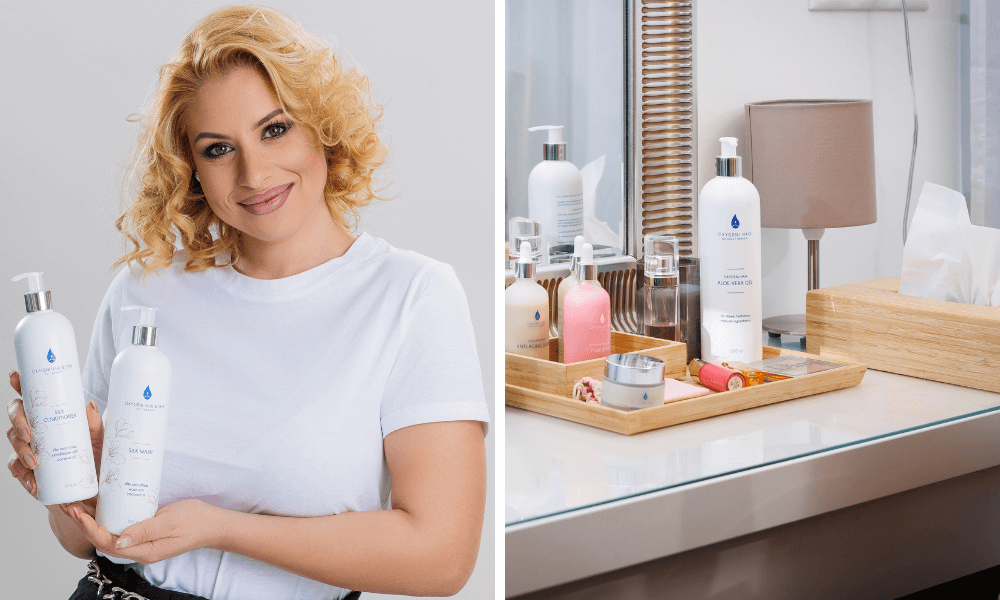
In summary, switching to natural alternatives in our household is not only beneficial for health reasons but also cost-effective compared to buying expensive cleaning products every week. Moreover, preparing these substances at home significantly reduces our ecological footprint. Transitioning to this path isn’t easy, and many doubt the effectiveness of homemade products. However, considering that our grandmothers often used such home remedies to keep their homes clean, it’s worth considering.
Author: Eszter Csalava
OXYGEN THERAPY AND OXYGENI HAIR PRODUCT REVIEWS
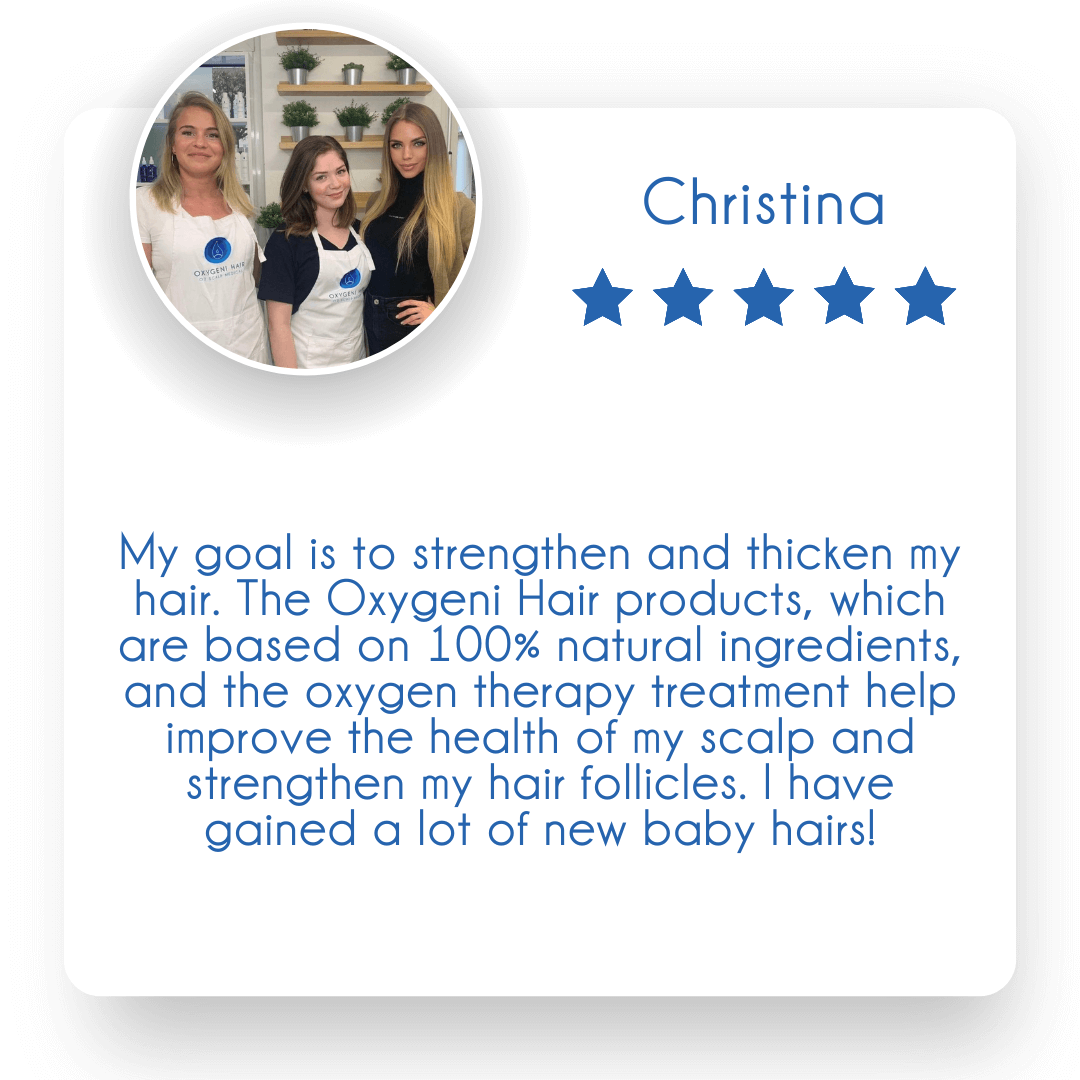

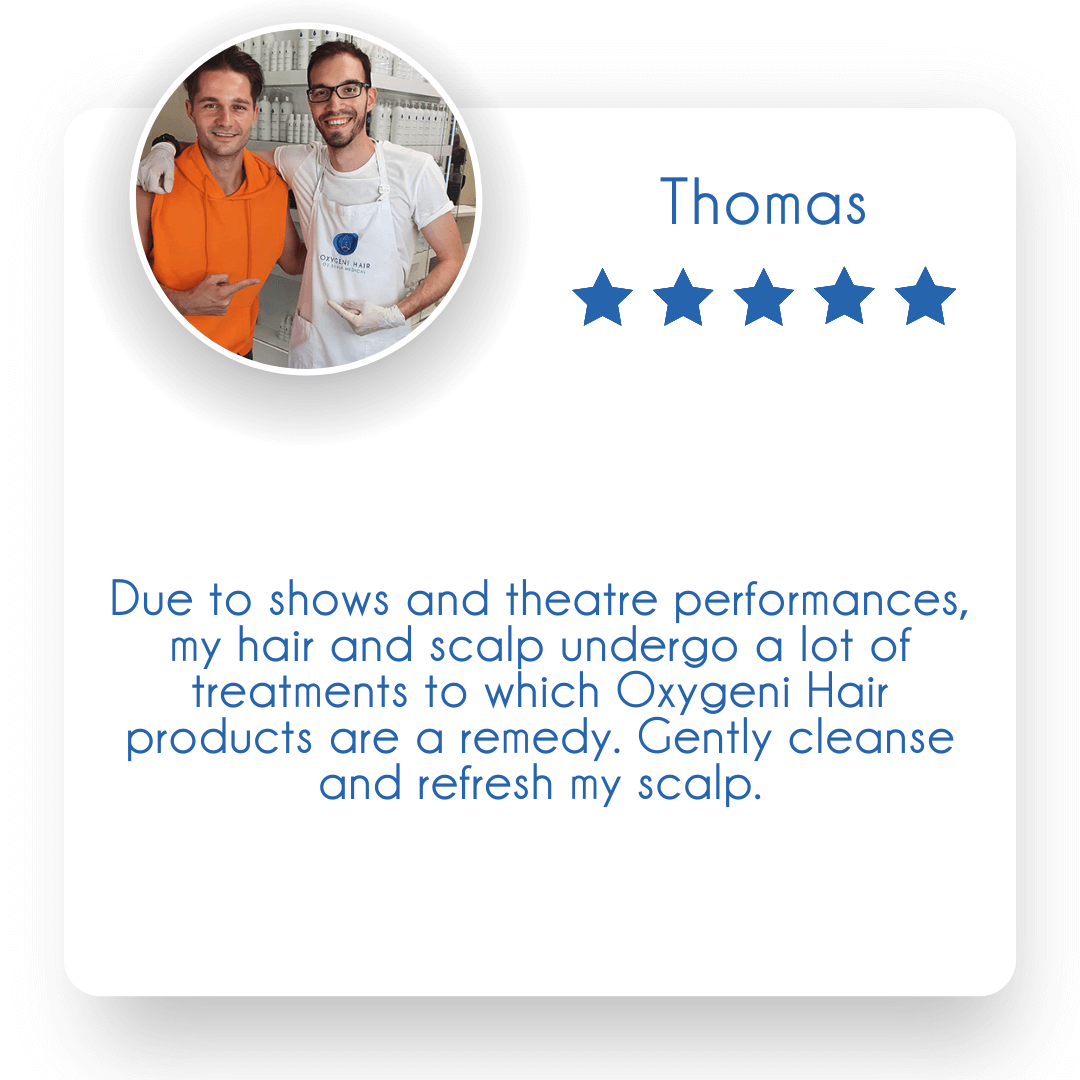
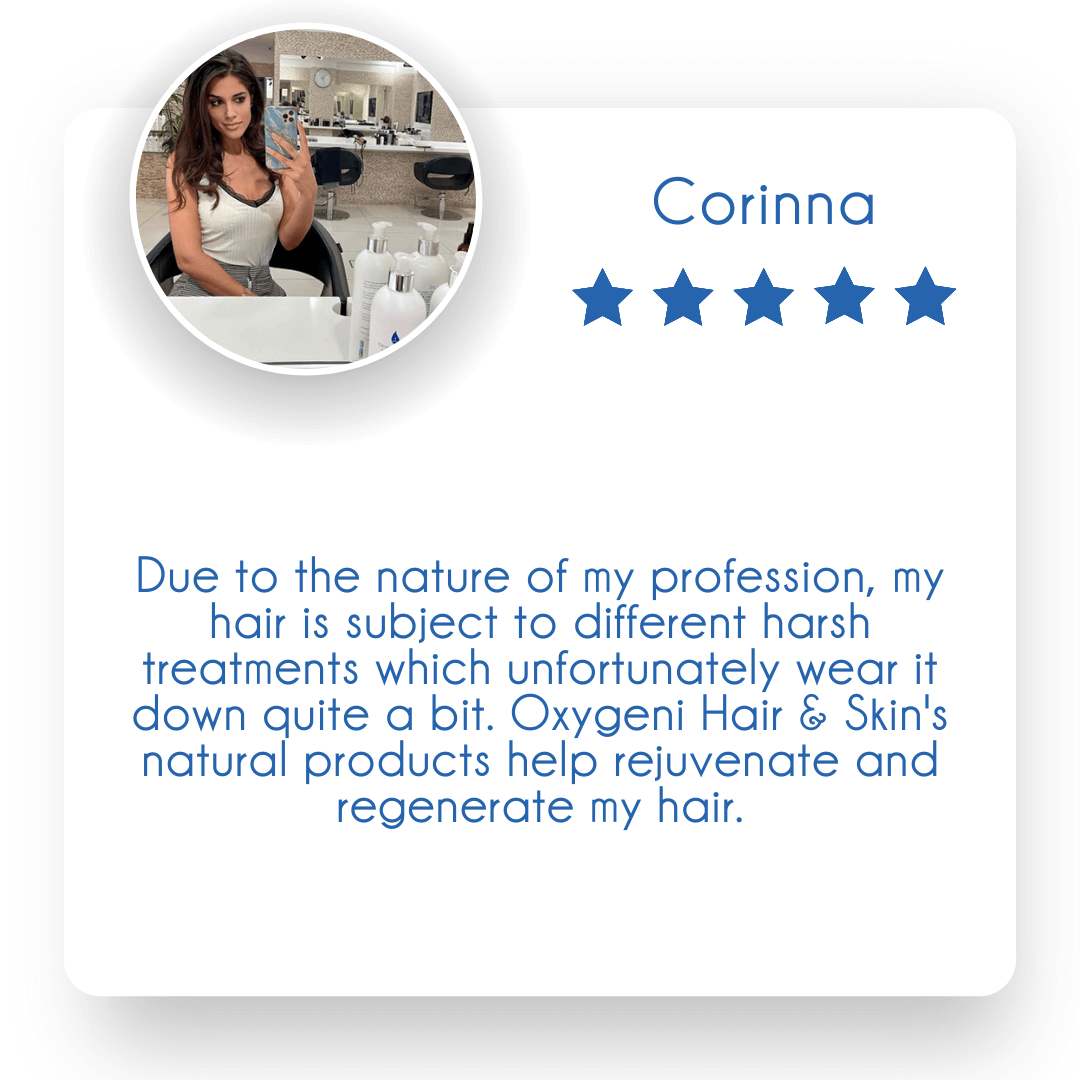
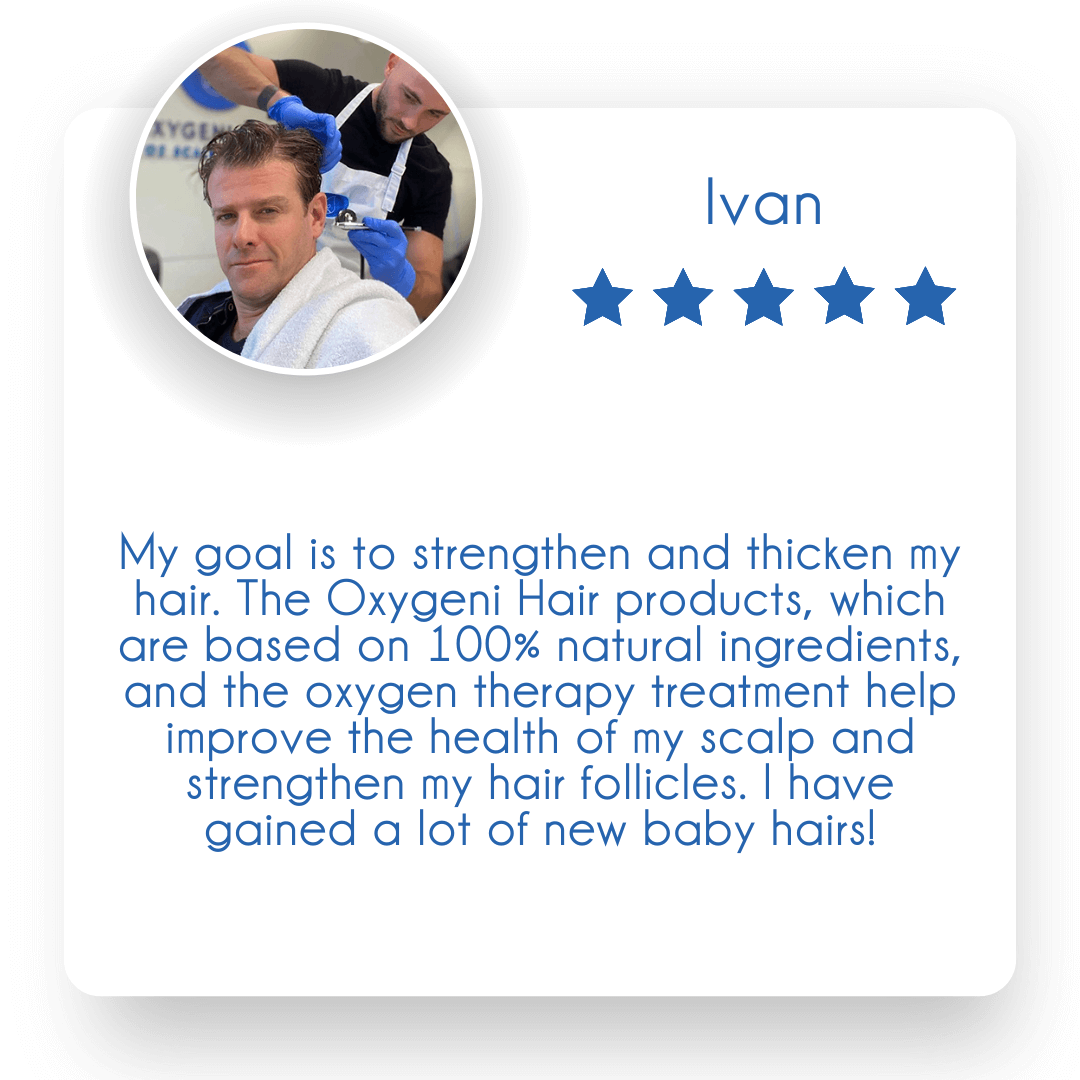
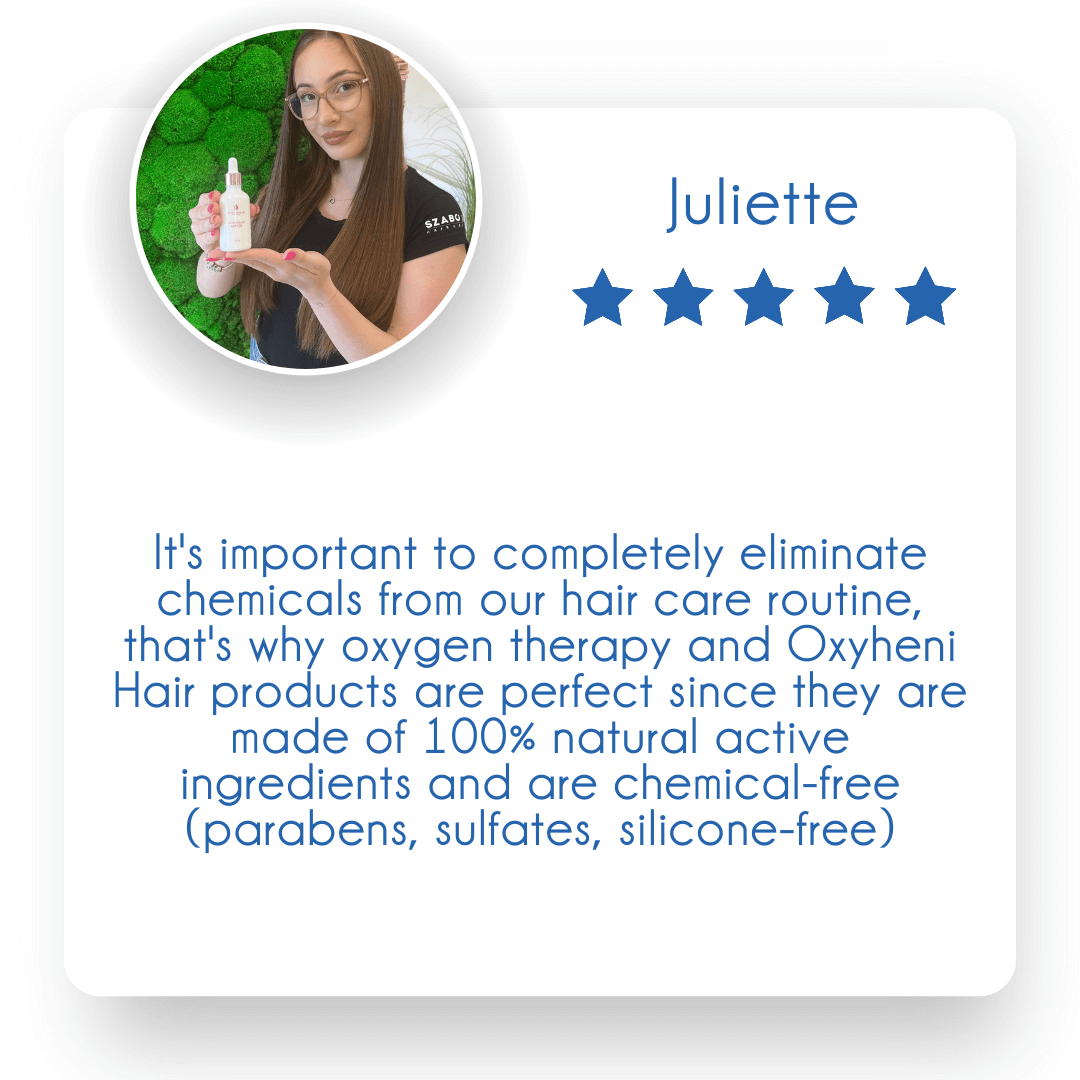
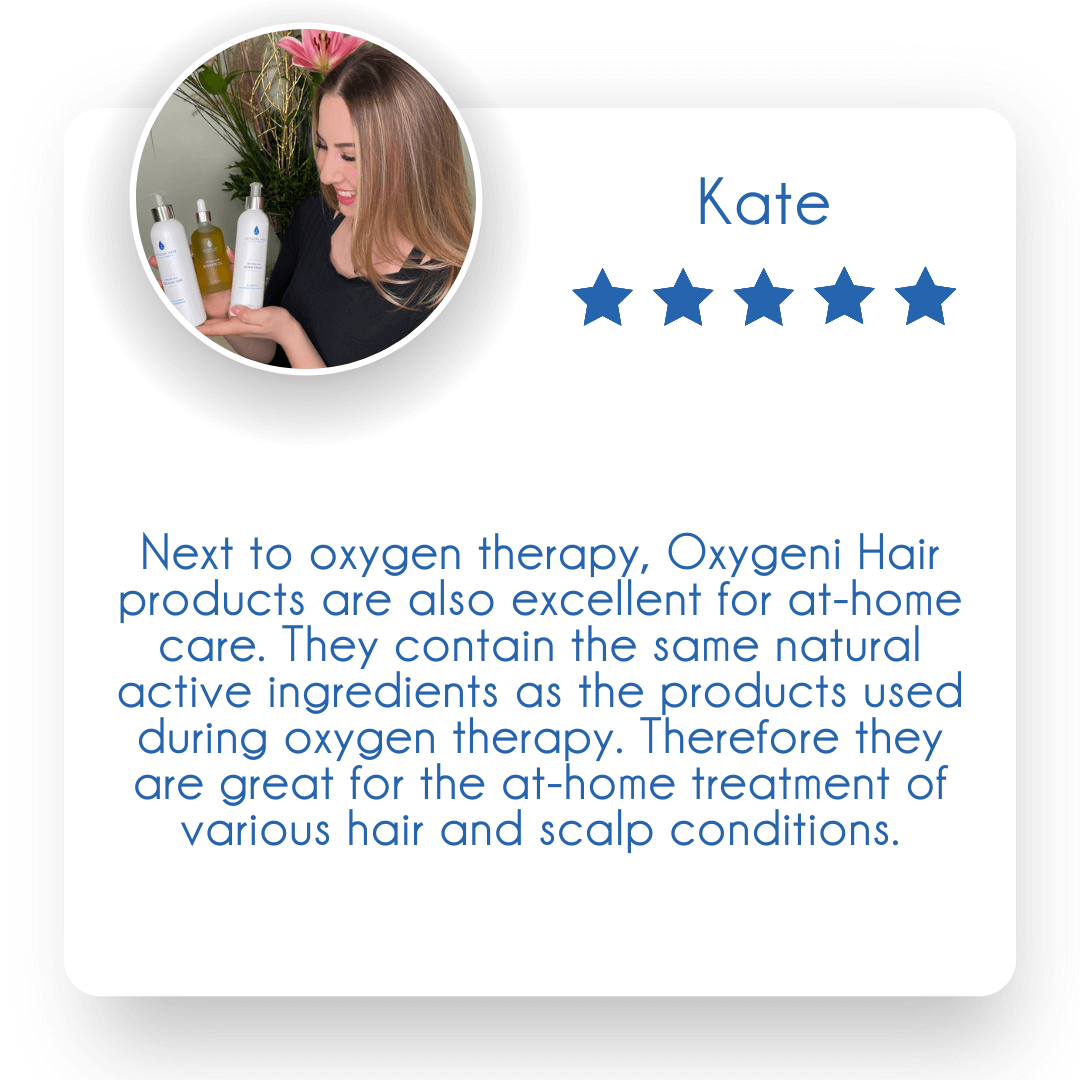
Follow us on our social media platforms!
